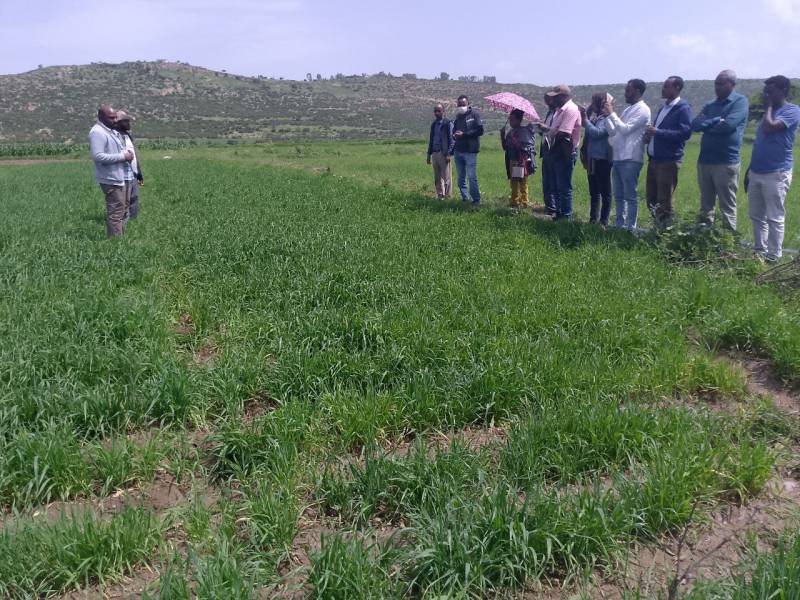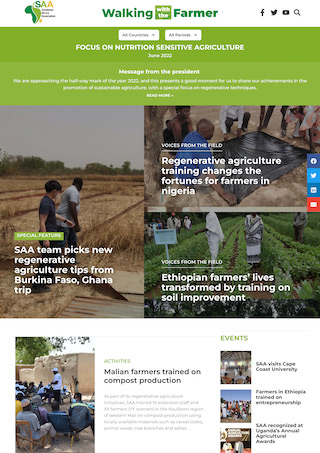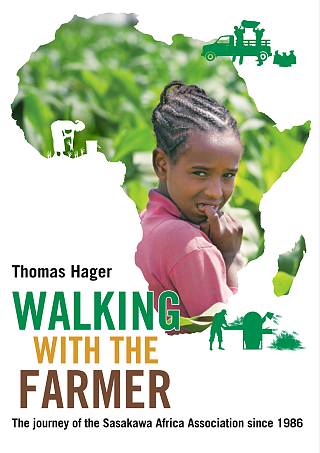Supervised Enterprise Projects - SEPs Supporting Farmers in Tigray

The Sasakawa Africa Fund for Extension Education (SAFE), a sister organization of the Sasakawa Africa Association (SAA), launched its mid-career education program in 1996 in Ethiopia at Haramaya University to target capacity building of agricultural extension agents. This initiative was designed to enhance the skills of mid-career professionals responsible for transferring agricultural knowledge to farmers. Over time, the program expanded to several other universities, including Hawassa, Bahir Dar, Wollo, Mekelle, Jimma, Arba Minch, Samara, and Jigjiga, where 2,702 (23% women, students have undertaken Supervised Enterprise Projects – SEPs. Later, the SAFE program was integrated into SAA as its Capacity Building Program.
Since its introduction at Mekelle University (MU) in 2012, the program has supplied the agriculture system with 374 graduates. Currently, 33 SEPs students, of whom 67% women, are enrolled and their projects are being carried out in 17 kebeles across 12 districts of 4 zones in Tigray region. However, the recent conflict in Northern Ethiopia disrupted the region’s agricultural development and the program for two years. In response, SAA monitored the situation closely and planned a supervision visit to assess the performance of SEPs at MU and identify area for support. Accordingly, field-level SEPs supervisions were held from August 31 to September 03, 2024.
A team of experts from SAA, MU, and regional Bureau of Agriculture participated in the field visit, reviewing 17 SEPs are managed by 17 students, of which 14 are women. Each SEP involved at leaset 10 farmers, and a total of 170 farmers directly participated, gaining practical skills and knowledge on wheat, barley, teff, maize and sorghum production.
 A mother farmer participating in SEPs (Supervised Enterprise Projects) in Ethiopia
A mother farmer participating in SEPs (Supervised Enterprise Projects) in EthiopiaField observations revealed that the majority of SEPs involved farmers who owned at least 0.25 hectares of land. Six of the female students were mothers carrying babies on their backs. Farmers were able to discuss and realistically show implementations of various techniques and procedures on applying new technology and best practices as advocated by students and learnt through SEPs. The group appreciated the mothers' dedication and their capacity to balance their roles as mothers and students in spite of the numerous social and economic obstacles that they face. Currently, the number of extension agents in the kebeles is below half of what is needed for the region, and more farmers in the districts have been reached by using the SEPs students.
The supervisors proposed the promotion of pre/post-harvest technologies such as planters for row planting, harvesting machines, plowing tractor, and other mechanization initiatives needed to be introduced and promoted. They also suggested organizing field days before harvesting to compare local and improved farming practices. Additionally, SAA has strengthened the Department of Agriculture and Rural Development with teaching equipment such as computers.
SAA Publications

E-newsletter
"Walking with the Farmer"
SAA publishes a bimonthly e-newsletter reporting on SAA activities.

SAA history book
"Walking with the Farmer: The journey of the Sasakawa Africa Assoication since 1986"
This book chronicles the history of SAA from its inception to the present.

Annual Report
Annual Report FY2023
Annual Report FY2023 is available here.





